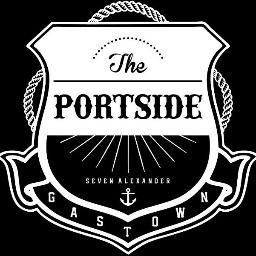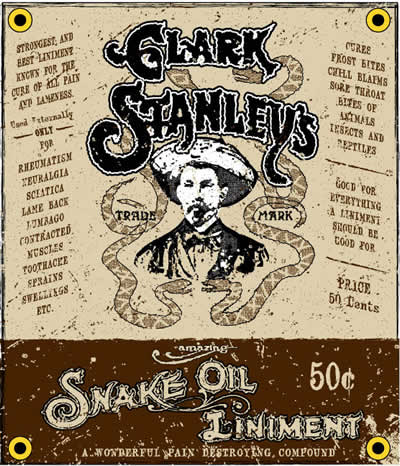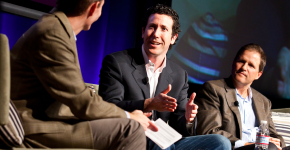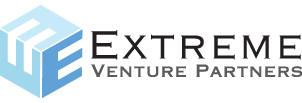
I’ve spent a lot of time thinking about incubators. Creating one, mentoring at others, visiting lots and being skeptical of several (I’m not saying which). You can decide for yourself if you think there is an incubator bandwagon being jumped on, but one incubator that marches to its own distinct drumbeat is The Founder Institute.
Here are two examples: 1) they don’t give you money and charge a nominal tuition fee, and 2) all founders who go through The Founder Institute get a share in a common equity pool. That’s pretty innovative.
 Entrepreneurs already know Adeo Ressi, who is the founder of The Founder Insitute, as the man behind TheFunded.com. He’s also behind a bunch of other successful startups and is a bit of a renaissance man.
Entrepreneurs already know Adeo Ressi, who is the founder of The Founder Insitute, as the man behind TheFunded.com. He’s also behind a bunch of other successful startups and is a bit of a renaissance man.
I spoke to Adeo recently about what makes The Founder Institute so different, why it works, and why Canada needs the Founder Institute. I think it’s a great model for talented Canadian entrepreneurs who don’t necessarily fit the ‘mould’ of the TechStars/YC genome. At the end of the post I’m going to ask for people to step forward if they would be interested in talking about getting The Founder Institute in their Canadian city. I know Adeo is interested, and so am I.
Here’s the interview:
You’ve built 8 startups, 4 of which were acquired. What’s the secret to your success?
Perseverance. No matter how bad things appeared, we struggled through the adversity to find the magic. Building a company from nothing to a few hundred or a thousand employees in a few years time is an immense challenge. The moment that you master one phase of growth, you are already onto the next. It takes a high degree of self awareness and perseverance to succeed. There is this meme that failure is acceptable. I prefer to triumph over adversity.
Your last two startups, TheFunded.com and Founder Institute, are about helping entrepreneurs. Is this philanthropy or business (or both)?
Entreprenurship is becoming harder, and I want to give back to the craft of entrepreneurship. A strong philanthropic mission can only endure with a solid business underpinning, so the Founder Institute is a for profit entity. I am turning over the for profit company stock to a long-term trust to guarantee the philanthropic mission for at least 100 years.
As I became more successful as an entrepreneur over the last 18 years, it became easier to build amazing products and harder to build great companies. When I started in 1994, about 1 in 100 companies were successful. Now, less than 1 in 1,000 companies are meaningful. The Founder Institute was designed to invert the startup failure rate, and our goal is to create 1,000 meaningful and enduring technology companies per year. We expect to hit this goal in 2012, less than 3 years after being incorporated ourselves.
There are a lot of incubators out there. What is different about the Founder Institute?
I am a huge fan of the programs being launched to help entrepreneurs. There is a renaissance going on. Most other programs help entrepreneurs that have a company, a team and traction. The Founder Institute looks for passionate people with a dream, and we help them create a meaningful and enduring technology company. I like to say that we mine diamonds, while others make jewelry.
We have chosen the most challenging segment, inception. Everyone involved in the Institute is a founder, and we create an equity pool that shares the upside created from the companies among everyone. So, if you graduate from the program and fail while a peer goes on to succeed, you will also see a return from your peer’s success.
Who should (and who should not) attend Founder Institute?
Everyone who has a dream to start a company should apply. We have absolutely no gender, race or idea biases, which also separates us from various other programs. The average age of applicants is 34 years old, and we have a 21% female graduation rate. Just due to our scale, the Institute is the largest female incubator in the world. I would eventually like to see our graduation demographics resemble the demographics of the working population.
What’s the greatest success of the Founder Institute to date, and why?
The greatest success of the Founder Institute is are helping thousands of people pursue their dream. We survey all enrolled Founders around the world, and nearly everyone would proactively recommend the Founder Institute. Some semesters are better than others and some locations have a stronger ecosystem, but the survey results are universally consistent.
What do you think Founder institute can do for Canadian startups?
The Founder Institute is a great asset for a burgeoning entrepreneurial ecosystem, like in Canada. We encourage successful entrepreneurs to help the next generation of companies and give them economic upside from the results. We help local Founders to launch meaningful and enduring companies. We provide a high quality stream of companies for other incubators, for investors and for various vendors. Ultimately, we are a value added player in the ecosystem, and we get along with everyone else.
You’re on the Board of the X Prize. Why are you so passionate about private space travel?
I am passionate about models to inspire innovation, and I believe that prizes are effective. As Chairman of the Strategic Committee when the Ansari X Prize was won in 2004, I pushed the foundation to expand the prize model into other categories, such as genomics, automative, medicine, etc.
There’s a great picture of you with President Clinton (http://www.adeoressi.com/about/). Seriously, how cool is he? What about Hillary?
In the photo, I am standing next Jeff Dachis as well, the Co-founder of Razorfish. I find that Founders are a much better bunch of people to spend time with than politicians, and I look forward to traveling around the world to meet aspiring Founders.
THE ASK
I think The Founder Institute would work really well in Canada. I think there are a lot more entrepreneurs than available spots at incubators and Adeo has really focused on what’s important for idea-stage startups. They’ve launched 415 companies in 20+ cities around the world.
I’m looking for interested parties to step forward if you’re interested in starting, running, mentoring or hosting The Founder Institute in Canada. Leave a comment or contact me directly.






 Entrepreneurs already know Adeo Ressi, who is the founder of The Founder Insitute, as the man behind
Entrepreneurs already know Adeo Ressi, who is the founder of The Founder Insitute, as the man behind 


